Martin Seligman - The Critic of Traditional Psychology and Father of Positive Psychology
When Martin Seligman introduced Positive Psychology he changed people's perceptions of what psychology was - or could be - about.
Point of view is critical, and until Seligman introduced his new 'happiness psychology' (as it was also called), much of the focus had been on how to change or prevent negative behavior rather than on how to encourage positive behavior.
Much literature attempts to answer such questions as:
- How do I handle the terrible twos?
- How can I prevent separation anxiety in my child?
- Why does a parenting system based on rewards and punishments damage confidence and self-esteem?
- How does the home environment contribute to childhood depression?
It is not that these issues are unimportant, but Seligman argues that giving problems center stage is in itself ... well, a problem.
Consciousness is Reproductive:
Focusing on a Problem, Perpetuates the Problem
 Numerous studies show that people trying to lose weight often fail and end up in a cycle of yo-yo dieting without ever seeing any significant results.
Numerous studies show that people trying to lose weight often fail and end up in a cycle of yo-yo dieting without ever seeing any significant results.
Why?
Some would say it is because they are making the problem - the excess weight - the focus of their change. On the other hand, when health and well-being becomes the focus, the success rate skyrockets!
See, working to achieve a positive goal is much more appealing than trying to overcome something that you perceive as negative. By putting your energy into the positive, the negative will automatically disappear.
Martin Seligman: Traditional Psychology Sees People and Life Through a Disease Model
Martin Seligman stated that traditional psychology put far too great an emphasis on weakness and illness, to the point where "getting rid of the bad" was more important that "attaining the good".
In other words, the main goal of psychology was to eliminate depression rather than helping someone find authentic happiness.
But, being undepressed is not the same as being authentically happy any more than being unfat is the same as being healthy.
Thin people can have unhealthy habits that affect their well-being, and likewise, non-depressed people can still have negative thinking habits that affect their overall happiness.
Antidepressants and medications may put a bandage on the problem but they won't change thinking patterns. And, therein lies the true source of trouble.
Seligman's Positive Psychology Theory Is so Simple and Logical and for Many Academics That in Itself Is Unacceptable
Seligman is often accused of changing psychology into "happychology", and his Power of Positive Thinking philosophy is criticized as being New Age or unscientific.
But, he argues that how you perceive life's situations makes a great difference on your level of happiness.
Negative thinking people are more likely to be unhappy, unsatisfied, pessimistic, or depressed.
Positive thinking people are generally more content, flexible, and optimistic about the level of control they have over their lives.
And, positive people are also more altruistic or outward focused. They impact the people around them in a positive way because their attitude and outlook is contagious.
Seligman believes this same principle can be applied to parenting.
Positive Parenting Builds on the Simple Principle:
What Goes around Comes Around
Positive parenting, which is a practical application of positive psychology, states that you get what you are - the way you treat your child will eventually be seen in your child.
Dogs beget dogs, flies beget flies, trust begets trust, and negative attitudes beget negative attitudes.
"You get what you give", "you reap what you sow", "what goes around comes around", "like begets like" - every culture has a phrase for it, but Seligman says that a positive parent will produce a positive child.
Parents can teach their children the skills of optimism, and focusing on the positive (optimism) will actually protect them from things such as depression, low self-esteem, and poor health.
But, positive psychology is not simply a real-life version of the Little Engine That Could. It is not about making your personal motto: "You have to think positive" or going around chanting "I think I can, I think I can, I think I can....."
No, it goes way beyond that!
Positive Parenting Is about Bringing out the Best in Children by Focusing on Their Strengths
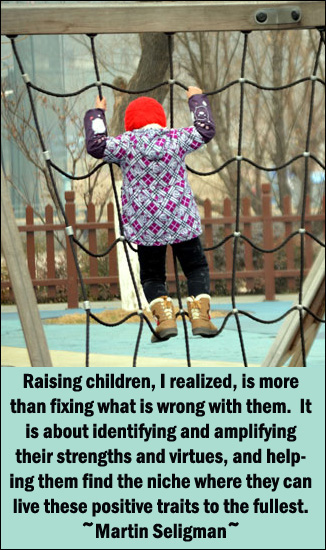 Seligman believes that positive parenting is about helping your children find their strengths and passions and teaching them how to use these "virtues" to become self-reliant, future-minded, and truly fulfilled.
Seligman believes that positive parenting is about helping your children find their strengths and passions and teaching them how to use these "virtues" to become self-reliant, future-minded, and truly fulfilled.
A Child Copies Beingness and Behavior
- Thus a Happy and Fulfilled Parent Makes an Ideal Role model
And, perhaps what makes Seligman's theory unique is that he focuses on the parents' contentment as well as the child's.
For a child to be truly happy, a parent must also be truly happy. For a child to find his strengths and virtues, a parent must also know their own strengths and virtues. For a child to be optimistic rather pessimistic, a parent must also be optimistic rather than pessimistic.
Are you getting the picture?
Positive Parenting Is Just as Much or Maybe Even More about the Parent than the Child
There are hundreds of parenting theories out there, but most of them emphasize the children without much mention or regard for the parents (except for listing what they should and shouldn't do).
And, by most societal standards, that is fine, right? Aren't parents supposed to sacrifice their lives and put their own needs aside for the sake of their children?
Some people may find Seligman's theory a little selfish, but the basic premise is - you can't teach what you don't know! Only an authentically happy, optimistic, fulfilled, non-depressed parent with positive character, meaning and purpose can raise a child to become this type of adult.
So, positive parenting isn't just about the child - it is about the parent as well. As a parent, take some time to re-evaluate your attitudes and perceptions, and by making positive changes, you just might find that your child-rearing experiences become far more enjoyable and rewarding.
The Martin Seligman Biography
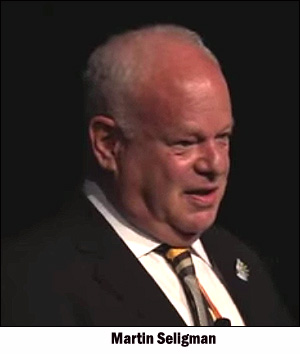 Martin Seligman was born August 12, 1942 in Albany, New York. He earned a B.A. of Philosophy from Princeton University in 1964 and received a Ph.D in Psychology from the University of Pennsylvania in 1967.
Martin Seligman was born August 12, 1942 in Albany, New York. He earned a B.A. of Philosophy from Princeton University in 1964 and received a Ph.D in Psychology from the University of Pennsylvania in 1967.
Seligman began his career working as an assistant professor at Cornell University before accepting a teaching position at the University of Pennsylvania.
It was here that he began researching mental illness - specifically depression - which eventually led to the introduction of the Learned Helplessness Theory.
Seligman's ideas changed the way many people viewed mental and emotional disorders, resulting in significant breakthroughs in the treatment of depression and mental illness.
He proposed that a pessimistic attitude is the primary cause of depression, and this focus on pessimism eventually prompted Seligman to research its opposite - optimism. And, what he discovered was so profound that it led to the development of a whole new branch of psychology - Positive Psychology.
In 1980, Seligman became director of the Clinical Training Program of the Psychology department at the University of Pennsylvania, and in 1996 he was elected President of the American Psychological Association.
Traditionally, each new president is asked to choose a theme - a legacy of sorts - to be the focus of their term. Of course, Seligman selected Positive Psychology.
He felt that there was far too much emphasis on mental illness rather than mental health.
He believed that less energy should be placed on what ails us, and more concentration should be put on what makes us feel happy and fulfilled.
In other words, the absence of illness does not equal mental health - a truly healthy person is not simply free of weakness, but also possesses strength and virtue.
Seligman argued that Psychology should not focus on eliminating weakness and illness, but should actually make happiness the primary goal of treatment. Remember, it is all a matter of perspective.
Seligman's ideas were somewhat revolutionary, although not completely unique. He was, after all, following in the footsteps of other innovative thinkers such as Carl Rogers and Abraham Maslow.
But, Seligman presented the ideas in a way that could be practically applied, and this resulted in an unprecedented interest in the field of Positive Psychology. Suddenly, hundreds of research studies were being conducted on everything from happiness to positive character and optimistic emotions.
Before long, Martin Seligman's theories had earned their place as a reputable branch in the field of Psychology, and an exploding interest in these ideas led him to establish the Masters Of Applied Positive Psychology Program at the University of Pennsylvania in 2003. This was the first academic program to focus entirely on this field of study.
Currently, Martin Seligman is the director of the Positive Psychology Center at the University of Pennsylvania as well as the editor-in-chief of the APA journal Prevention and Treatment.
As the author of 20 books and more than 200 articles, Seligman has given lectures to educators, parenting groups, and health care professionals, and has done several television and magazine interviews.
He has also served as a member of various boards and received a number of awards and honors for his contributions to the field of Psychology.
Martin Seligman's Theories and Contributions
Building on some of the basic principles introduced by humanists such as Carl Rogers or Abraham Maslow, Seligman has earned a reputation for being one of the most influential psychologists and educators in the field today.
Two of his most significant contributions include:
Learned Helplessness Theory
Seligman discovered this concept of learned helplessness theory while conducting a study with dogs.
Basically, he confined a dog in a harness and then shocked the animal. After several attempts to escape, the dog eventually learned that there was no way to avoid the shock, and therefore, no longer looked for a way out.
Essentially, he gave up.
However, when this same dog was then put into an open area, he still did not try to escape when shocked, even though he could have.
Interestingly, another dog who had not been previously harnessed and shocked, was quick to look for a means of escape and take it.
Seligman concluded that the first dog felt a lack of control to change the circumstances, and therefore, became resigned to the situation.
After further research, Seligman began to transfer these finding over to people.
Helplessness Is Learned When There Is Lack of Belief in 'I Can'
He discovered that depressed people actually learned to be helpless because they believed that they had no control to bring about change.A Positive or Negative "Explanatory Style" Reveals Peoples' Self-World Relationship:
Am I an Agent or a Victim
He then expanded this theory by adding the concept of "explanatory style", or the way people perceive their situations.
Seligman proposed that those with a pessimistic explanatory style will often blame themselves when things go wrong, feel like they deserve what they get, or believe that negative events are their "fate" or "destiny" and that these things are out of their control.
It is a dark interpretation of the old phrase "Que sera sera - whatever will be, will be".
However, those who have an optimistic explanatory style do not always blame themselves, but realize that they have the power to change a potentially negative situation into a positive experience.
In the video below by FightMediocrity, Martin Seligman's theories on Learned Helplessness and Explanatory Style is explained in a visual and very easy-to-understand way.
Identification of Two Ways to Respond to Situations
Martin Seligman found that most people follow a basic process when responding to situations:
- Recognition of a problem
- Identifying their belief about the problem: what caused it? Positive or pessimistic explanatory style? Projected outcomes?
- Response to the problem: Belief about the problem will often determine a person's response to any given situation.
Those with learned helplessness will often stop here, accepting whatever happens. However, people who have an optimistic explanatory style will continue the process:
The Continued Process the Optimistic Explanatory Style
- Re-evaluate beliefs about the problem: "Will my current perception of the problem lead to a good outcome?" "Did my initial response reflect an optimistic or pessimistic attitude?"
- Resolution: How can the situation be changed, who can help, what response will bring about a positive outcome for the most number of people?
Martin Seligman's Learned Helplessness Theory brought a lot of significant changes and breakthroughs in the area of depression and mental health.
Basically, he stated that:
- Children learn their explanatory style from their parents.
- Optimism can be taught.
- Learned Helplessness is a conditioned behavior that can be changed.
- Depression can be overcome and prevented by learning a new explanatory style.
- Children can be protected from depression, low self-esteem, and helplessness by being raised in an environment that encourages effective (positive) responses to adversity.
Although the Learned Helplessness Theory revolutionalized many popular and long-held treatment philosophies, it was really only the foundation for a much bigger and more powerful concept - Positive Psychology.
Positive Psychology
 Psychology is known for its well-established, deeply rooted schools of thought, so the almost instant popularity of Martin Seligman's theory was shocking.
Psychology is known for its well-established, deeply rooted schools of thought, so the almost instant popularity of Martin Seligman's theory was shocking.
However, with a lot of research to support his theory, Positive Psychology quickly gained credibility and is now among the most respected concepts in the field.
Positive Psychology is quite complex, which is why Seligman has written several books on the topic.
But, the basic idea is very simple: if you have a positive attitude you will be happier and less likely to become depressed.
Seligman states that every individual has different strengths, and true authentic happiness is found in discovering these strengths and using them to make a difference or impact the world.
Martin Seligman's 6 Virtues
Martin Seligman identifies 6 virtues:- Wisdom and knowledge
- Courage
- Love and humanity
- Justice
- Temperance
- Transcendence
These virtues are then divided into 24 strengths.
For example, the virtue "courage" would include strengths such as perseverance, integrity, or authenticity.
Or the virtue "transcendence" may include strengths such as appreciation of beauty, gratitude, purpose, and goals for the future.
Living out Your Potential Is a Huge Step Towards Authentic Happiness
When applying positive psychology to your life, the first step is to fill your life with happiness and minimize negativity by changing your thinking patterns and focusing on those things that make you feel good.
But, it doesn't stop there. The ultimate goal is to find out what you are good at - what are your strengths, or what do you like to do?
By using your strengths and doing what you enjoy, you will find happiness and fulfillment and gain satisfaction from mastering specific skills.
Living up to your potential is a major step to authentic happiness, but again, it doesn't end with this accomplishment.
BUT Authentic Happiness Cannot Be Permanently Achieved Without Altruism:
The Giving of Yourself to Something Higher Than Yourself
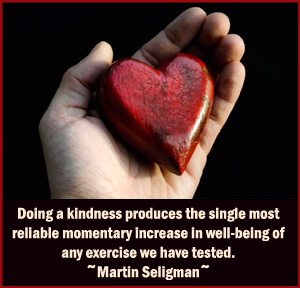 Truly happy people believe that they have been given certain skills and strengths for a purpose higher than themselves.
Truly happy people believe that they have been given certain skills and strengths for a purpose higher than themselves.
By living beyond yourself and connecting to the "bigger picture", you will find that there is little room for a negative attitude.
Pessimism exists when someone feels like they have no control to change a situation. Optimism will result when a person uses their virtues or strengths to create positive situations - or to respond to a potentially negative situation is a positive way.
Seligman claims that adults can develop the skill of optimism - even if they are currently pessimistic.
But, he also encourages parents to instill these skills in their children from a very young age so that they never have to deal with the struggles of pessimistic thinking.
He proposes that many of the problems often associated with adolescence, such as depression and low self-esteem, are a result of focusing on weaknesses rather than strengths.
Parents need to discover their own strengths and then use these to help them raise their children. Also, parents need to bring out the best in their children to help them achieve their full potential.
Academic Criticism of Positive Psychology
Martin Seligman's theory has a lot of content and the basic ideas are quite simple to understand and apply.
In fact, some critics argue that it is too simplistic or too narrow a goal for human life.
Although Positive Psychology has become quite popular, there are those who very vocally disagree with Seligman.
1) "Head in the Clouds" Syndrome: Keeping a Positive Attitude Is Unrealistic
Critics argue that the "keep a positive attitude" idea is simply unrealistic - a problem doesn't go away just because you ignore it. Actually, Seligman would probably agree with them.
They have missed the point of positive psychology.
Remember, it is about perception - your point of view. Seligman doesn't encourage people to ignore the problem, but to view the problem in a different light. Changing the way you see something does not mean that you no longer see it.
When your belief about a problem changes, your response toward it will also change, and this will affect the outcome you receive. There are so many stories of people who have overcome adversity to find success.
Did they disregard the difficult or unfair situations?
No.
But, their positive attitude - their optimistic explanatory style - refused to give up.
Unlike Seligman's conditioned dogs, they knew there was a way out and they were determined to focus on the positive so that the negative didn't take over their lives. Rather than succumbing, they searched for solutions.
It is why some people become helpless and depressed while others do not, despite negative circumstances.
It is not keeping your head in the clouds. It is simply viewing reality in a positive light.
2) Are Self-Tests Accurate Enough?
Much of Seligman's theory is based on self-administered tests. The question is - do you see yourself accurately?
Or, is your self-perception clouded by your negative (or positive) attitude?
After all, people who tend to blame themselves for the bad thing that happens to them will likely answer questions differently than people who have a more balanced (or optimistic) attitude toward life.
Parents can also answer questionnaires on behalf of their children, but again, the question of accuracy is raised.
3) The Terms Positive and Negative Are Subjective and Thus Ambiguous
The strongest critics of Positive Psychology claim that it is not empirical enough and that the terms "positive" and "negative" are too ambiguous.
Personality, cultural differences, and social status can influence an individual's interpretation or definition of these words. What one person calls "positive" another may call "unrealistic", or what one person perceives as "negative" another may see as "practical".
They argue that without a clear definition of terms, it is difficult to get accurate data. In response to critics, Seligman claims that he does in fact have a lot of empirical data to support his theory as well as several scientific organizations that back his research.
4) Exclusivity of Virtues
Seligman states that individuals possess certain virtues or strengths that should be used to help them achieve their full potential. He calls these Signature Strengths.
Critics ask the question - if these factors are indeed virtues and strengths, then shouldn't everyone work to achieve all of them? Are virtues really optional? Can someone really say, "Integrity is not my strength so it's alright if it isn't developed in my life?"
However, Seligman never says that the possession of one strength implies the absence of the other 23. Maybe one of your strengths is Knowledge and you love to study and learn and work at discovering new things. Perhaps you will enjoy a field that develops scientific or medical breakthroughs. Or, maybe you will prefer a job as a teacher or researcher.
By stating that Wisdom and Knowledge is your strength, are you thereby saying that you do not possess courage? Or, that you shouldn't have a grateful attitude and an appreciation for beauty?
Seligman was only pointing out that, as individuals, we are all different. And, we should use the areas in which we are stronger - our Signature Strengths - to help us realize our full potential and become involved in something beyond ourselves.
Books by Martin Seligman
With 20 books and more than 200 articles, Seligman has provided a wealth of information on everything from parenting to motivation, positive emotions, and authentic happiness.
Most of his material is easy to understand and simple to apply to everyday life.
Learned Optimism
Learned Optimism introduces the basics of positive psychology and outlines the benefits that optimism will have on quality of life.
It offers exercises that will teach you how to break the habit of pessimism and develop a positive attitude.
If you are a parent, this book is about becoming the kind of adult that you want your child to reflect. This book is full of helpful information including:
- How to recognize your explanatory style
- How to help yourself and your children develop positive patterns of thought
- How to develop the skill of optimism that will help you avoid depression and build improved immunity, better problem solving skills, and a positive outlook toward problems
- How to recognize learned helplessness and pessimism
- Connection between how you think and how you feel
- How to achieve success in every area of your life, including school, work, family, friendships
The Optimistic Child
In The Optimistic Child, Seligman shows parents how to teach their children the skills of optimism so they can avoid depression and achieve higher levels at school, improve performance in sports or activities, and enjoy better physical and emotional health.
According to Seligman, about 30% of children in America suffer from depression, and this book offers exercises and techniques that will help children overcome pessimism and develop a more optimistic attitude.
He also cites studies that show a strong correlation between parental happiness/depression and child happiness/depression, emphasizing the importance that parents apply these same strategies to their own lives.
He also states that self-esteem does not come from positive feedback or even praise from adults, but that true confidence and self-worth is achieved by mastering tasks, solving problems in a positive manner, and achieving goals.
- "Teaching children optimism is more, I realized, than just correcting pessimism....it is the creation of a positive strength, a sunny but solid future-mindedness that can be deployed throughout life - not only to fight depression and to come back from failure, but also to be the foundation of success and vitality."
- Tests to measure your child's optimism
- Techniques to change your child's explanatory style - if necessary
- How to increase optimism and mastery
- How to identify your child's strengths and virtues
- How to help your child achieve their full potential
- How to encourage future-mindedness and altruism in your child
Authentic Happiness
Martin Seligman believes that happiness is found internally, and should not be based on external factors. Authentic Happiness explains authentic - or real - happiness, how it can be achieved, and how parents can teach their children to look for true fulfillment within rather than seeking it from outside sources.
It reviews many of the principles of Positive Psychology and also introduces unique ideas related to the three levels of happiness: the pleasant life, the good life, and the meaningful life.
Although it is not geared specifically to parents, Seligman does include a chapter on raising children to be authentically happy.
The reader will learn:
- The virtues and strengths identified by Seligman
- How to discover signature strengths and virtues
- How to use the strengths and virtues in creative ways to make a difference and lead to a fulfilling life
- The connection between negative emotions and negative responses
- The connection between positive feeling and positive character
- How to be content in the present and optimistic about the future
- How to find personal satisfaction
- The importance of meaning and purpose
- The power of love
- How to use these principles in the raising of children
Your Positive Parenting Ally,
Birgitte

Want to stay in touch and get the latest news?
Sign up
for my free newsletter
Parent Coaching
- For Inner Peace, Clarity and a Deeper Connection to Your Child
 Being a parent can feel like a double-edged sword. Life with kids may feel like the greatest gift you have ever received, while at the same being hugely challenging, often leaving you confused, stressed and overwhelmed.
Being a parent can feel like a double-edged sword. Life with kids may feel like the greatest gift you have ever received, while at the same being hugely challenging, often leaving you confused, stressed and overwhelmed.
When we feel like this, we've lost touch with ourselves. We can't hear our own inner voice, and it's difficult to know what is 'right' for us and how to act.
I offer in-depth parent coaching to help you regain your balance and get back in touch with yourself. From a place of inner peace and clarity, your will find your own answers which will help you reconnect with your child from a place of unconditional love and acceptance.
Read more about my parent coaching here.
Where Would You Like to Go Next?
Famous Parenting Experts Overview
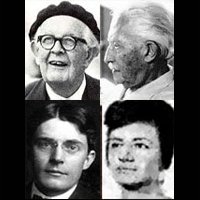 Famous Parenting Experts and Their Parenting Styles Theories: Humanism vs. Behaviorism. |
Parenting Experts Related to HUMANISTIC Parenting Styles (Founders, Refiners, Supporters or 'Coiners')
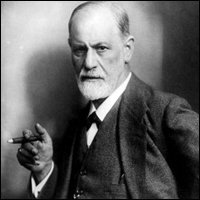 Sigmund Freud the Controversial Pioneer of Psychology: The Famous Psychosexual Stages of Child Development. |
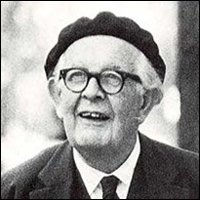 Jean Piaget Biography, Theories and Books: The Earliest Torch Bearer of Humanism. |
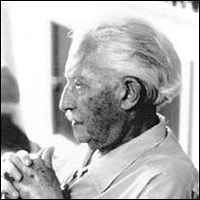 Erik Erikson Biography and Theories: The 8 Developmental Stages, Identity Crisis and Ego Identity. |
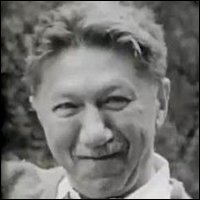 Abraham Maslow Biography: The Father of Humanistic Psychology and Self Actualization Theory. |
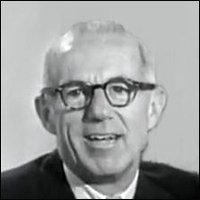 Dr. Benjamin Spock Biography, Theories and Books: The Controversial Forefather of Intuitive Parenting. |
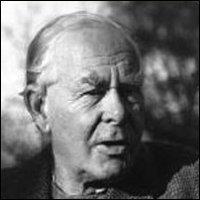 A Biography of John Bowlby: The Father of Attachment Theory. |
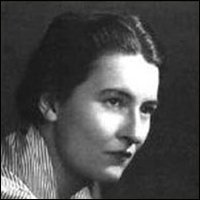 An Intriguing Mary Ainsworth Biography: The Refiner of Attachment Theory. |
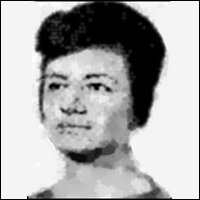 Diana Baumrind Spot-on: Biography, 3 Parenting Styles and Criticism (Spanking). |
 Carl Rogers Biography, Theories and Books: The Founder of Humanistic Psychology. |
 Alfie Kohn Biography, Theories and Books: The Father of Unconditional Parenting. |
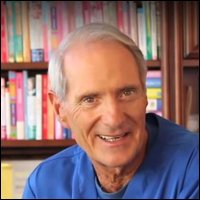 Deep Insights into the Essence of Dr Sears' Attachment Parenting - Along with a Fascinating Historical View on the Slow Rising Consciousness of Attachment Parenting. |
Parenting Experts Related to BEHAVIORIST Parenting Styles (Founders, Refiners, Supporters or 'Coiners')
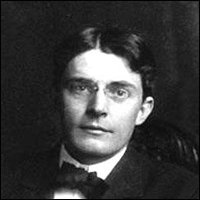 John B Watson Biography, Theories and Books: The Father of Behaviorism. |
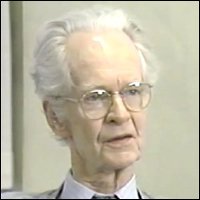 B. F. Skinner Biography, Theories and Books: Father of Radical Behavorism. |
 Amy Chua Biography and Theories: Tiger Mother's 9 Parenting Principles. |
Back to the top of this page about Martin Seligman - The Critic of Traditional Psychology and Father of Positive Psychology
Go to the Positive Parenting Ally Homepage







